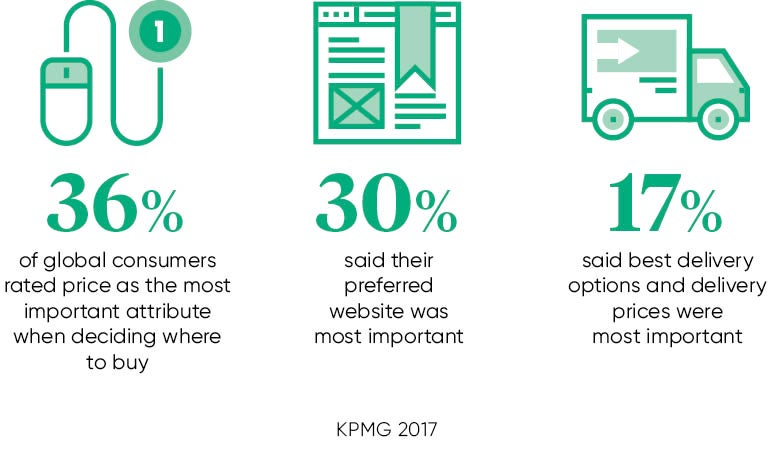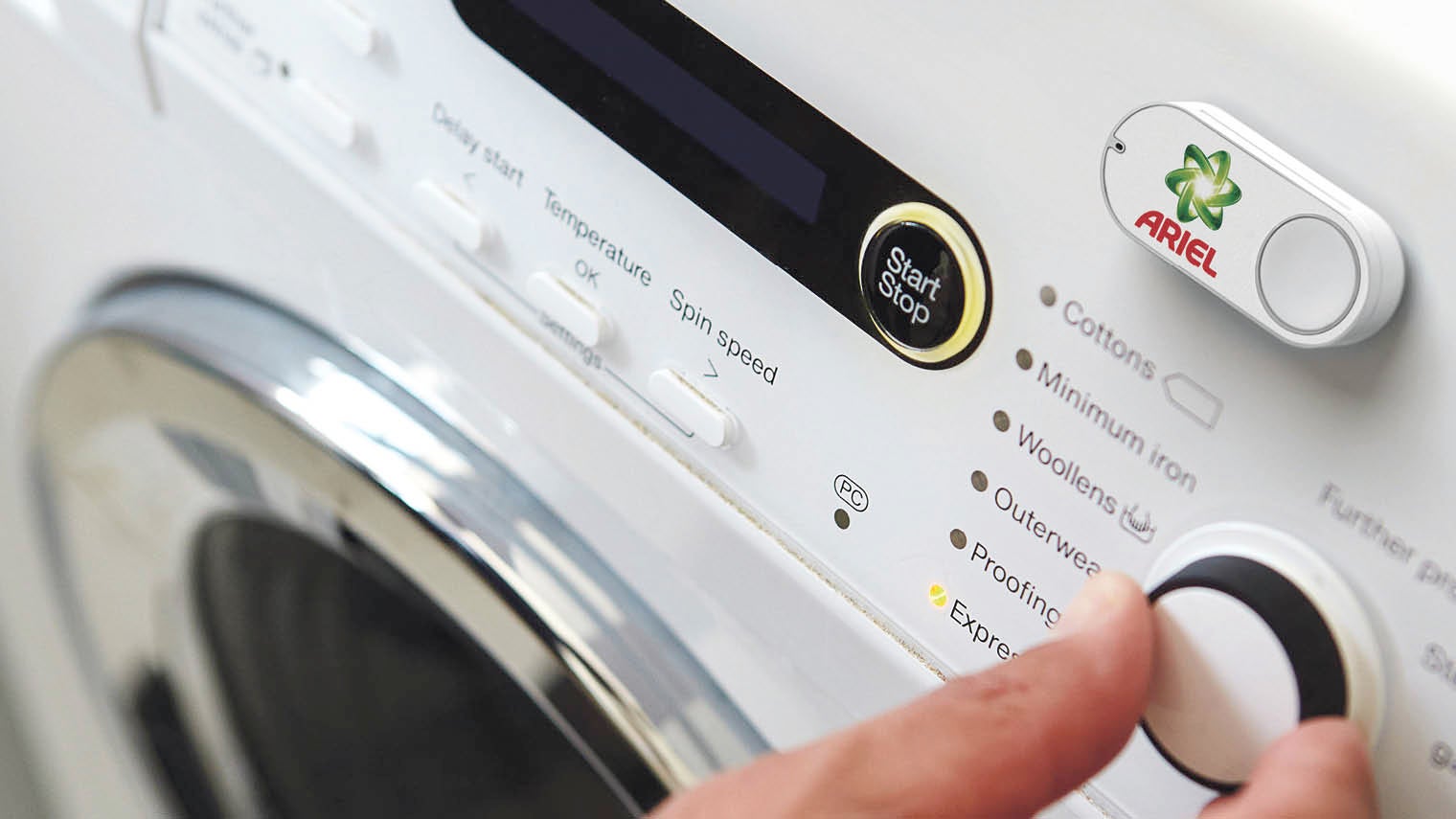For decades companies that produce the goods we consume from coffee capsules to razors and cars to dishwasher tablets have fine-tuned the products they’re making, the brands they’re building and the prices they’re offering. Until now this has defined our decisions. Yet a third variable – service – has recently come to the fore: “when, how and where will I get it?” now trumps “what will I get?” shaking up the world of customer experience.
Blame digital disruption, blame Ocado, blame Amazon, whose founder Jeff Bezos famously said: “When people ask me if our customers are loyal, I say absolutely, right up to the second that somebody else offers them a better service.”
That’s because UK society has been served up a brave new world of convenience, and now craves low-cost, next-day delivery and click-and-collect smartphone shopping. Even if consumers are visiting bricks-and-mortar stores, they want the same speed and user-friendly experience that online and mobile offers.

Five star service
“It’s all about owning the customer and their experience. If you own the interface, you own the customer. If you own the customer, you own the data. And if you own the data, you own the future,” says Hugh Fletcher, global head of innovation at Salmon.
This age of ultra-convenience is certainly a challenge, eroding brand loyalty. Point-based, one dimensional and non-interactive loyalty schemes also don’t cut it anymore, particularly when it’s so easy to find a better product, at a better price online. “Brands are increasingly looking to define their role in a customer’s life and service is becoming a meaningful way to do this,” says Michelle Du-Prât, strategy director at Household.
How you’re served has become a fundamental part of the DNA of customer experience, not an afterthought. “Every brand from luxury to high street, food to fashion is now in the convenience business,” says Ms Du-Prât.
Undoubtedly, what’s required in the UK is a much bigger investment in great service. Many businesses are just playing catch-up. Rarely a day goes by when the media isn’t reporting on shoddy British service culture from appalling rail services, to rip-off energy companies or archaic banks.
“Customer loyalty as we traditionally know it is dead,” says Rachel Barton, managing director at Accenture Strategy. A recent survey they conducted shows that 83 per cent of UK consumers are quicker at retracting their loyalty from a brand today than they were three years ago.
Brands are increasingly looking to define their role in a customer’s life and service is becoming a meaningful way to do this
“In a world where service is consistent, brand and product will rise again. In a world where it is inconsistent, bad service could spell the end for some,” explains Mr Fletcher. In recent years, this was demonstrated by the fortunes of John Lewis and Waitrose, in contrast to Tesco, although both organisations are now impacted by online convenience shopping.
The reality is that while one company may make the initial step and set a new standard in convenience, others will be fast followers. “Expedia changed how we book holidays through price and convenience, only for Airbnb to then dominate rental bookings,” says Christopher Evans, a director at Collinson Group. “Yet offering additional value to the customer beyond convenience is now key to longer-term loyalty and to defend against competitors.”
The next step
Anyway, competing through convenience on a functional, operational metric such as quicker delivery times, unleashes a relentless arms race, which nobody really wants.
“Yet players that have simple convenience offers, like Amazon and Uber, are innovating incessantly to stay ahead on a much richer, more multi-dimensional view of customer experience,” says Simon Glynn, senior partner at Lippincott.
Amazon’s move with Prime, media content and Dash, which lets consumers press a button placed wherever they like in the home to purchase common items, such as cat food or washing powder, is part of that process. General Electric now offers washing machines that shop for their own detergent. “Uber is no longer just about easy, fast access to a car; it is now the convenience of not having to say where you’re going or not even open the app. TripAdvisor even offers Uber, telling you how long a cab will be when you book the restaurant,” adds Mr Glynn.
This is because well-healed players realise that convenience as a differentiator doesn’t buy evergreen loyalty. “Convenience has created novelty, but it won’t last forever. Just seven years ago it was price that was king, and it’s important to remember that the economy and consumer needs work in cycles,” explains Nick Cooper, executive director at Landor Associates.

Amazon’s Dash buttons are WiFi connected devices to reorder products at a place convenient to the customer
“Convenience increasingly becomes a basic trait rather than a unique selling point. Businesses will therefore still need to differentiate themselves through products or services. Those that succeed will be those that meet the convenience demands of consumers, while still standing out from the crowd with their own brand offering.”
Certainly, we’re now motivated by brands that engage us in new ways. It helps that companies can own the whole customer journey, bypassing retailers and taking control of their own online channels, as well as moving into bricks and mortar. “We have already seen this with Apple, and now companies such as Tesla and Dyson, taking ownership of their end-to-end customer experience,” says Rupal Karia, managing director for retail at Fujitsu.
Anticipating customer need is the next step. Predictive services through artificial intelligence could be the new frontier in the customer experience and loyalty world. “The battle lines have been drawn. Will loyalty to service create a more monopolised and commoditised world where the strongest brands are the tech giants? Or will the brand’s ability to appeal to human nature and aspiration win the day?” asks Salmon’s Mr Fletcher. We will have to wait and see.

Five star service
The next step

